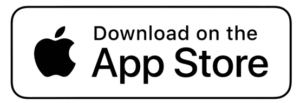Deadline: 12 February 2024
The Metcalf Institute is pleased to announce the Annual Science Immersion Workshop for Journalists (AWJ) to address the environmental change gap, and to be a valuable resource for journalists working in a wide variety of beats.
The Annual Workshop is designed to help fellows gain new insights, sources and resources to aid their reporting, expand peer networks with journalists from around the globe, and produce accurate and contextualized reporting on globally relevant environmental issues. Metcalf Fellows will gain a solid foundation in the fundamentals of research practice, climate science, and adaptation measures from leading researchers and policy makers.
The 2023 Workshop will be conducted in person at the University of Rhode Island in Kingston, RI. on June 3-8, with supplementary asynchronous preparation.
Focus Areas
- This year will have a special focus on water issues and climate change. Fellows will dive deep into issues such as water quality, plastics and public health, and ecosystem restoration, all through a social justice lens.
Benefits
- The Fellows will:
- Gain a deeper understanding of how scientists conduct research and handle scientific uncertainty.
- Develop the skills and confidence to interpret and translate the language of scientific journals for news audiences
- Build confidence in their abilities to discern the credibility of scientific sources
- Discover new ways to write about energy and climate change to build audience understanding and engagement
- Cultivate new sources by interacting with leading researchers and policy experts in an informal, off-deadline atmosphere
- Network and developed lasting relationships with journalists from a wide range of media and backgrounds
As a result of participating in the Annual Science Immersion Workshop, Fellows will
- Be able to identify important climate change and energy stories that are relevant to their news audiences.
- Understand how academic scientists plan, fund, conduct, and publish their research
- Be better prepared to understand and communicate scientific uncertainties
- Be better prepared to translate scientific findings for news audiences
- Recognize and understand the interactions between climate change, the environment, and society, and how climate change disproportionately affects communities of color and low-income communities.
For more information, visit Metcalf Institute.




